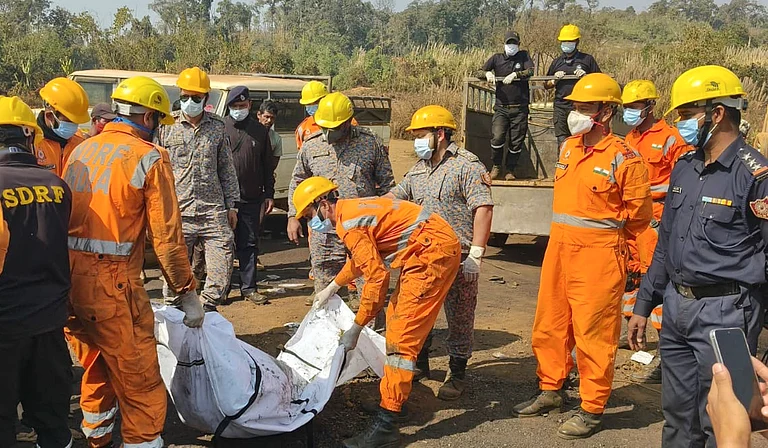RELIEF is the dominant feeling among Bangladeshis after a neutral caretaker administration headed by former Chief Justice Mohammad Habibur Rahman took over the reins of government on March 30, ending over two years of turmoil and political uncertainty. But the question is: will the relief prove shortlived?
Despite widespread fears of a violent showdown between the combined Opposition led by the Awami League and the ruling Bangladesh Nationalist Party (BNP), the transition has been peaceful. This is largely because of the last-minute concessions both sides made in an apparent effort to consolidate their respective gains.
Moreover, the crippling non-cooperation movement that paralysed Bangladesh for three weeks is now over. There has been a spurt in normal activity—both economic and social—since the caretaker administration of Habibur Rahman promised that his government would do everything possible to restore order and peace in the country, so that the people can get on with their lives.
But ensuring this remains a daunting task. The plethora of illegal arms in the hands of political activists and hooligans have posed a serious challenge to the new administration. All political parties have strongly demanded that the recovery of illegal arms be given top priority to facilitate a free and fair election, which is the primary mandate of the caretaker government.
However, BNP leaders, including Khaleda Zia, have protested that their activists and supporters are being harrased and arrested in the name of arms recovery. The recent raid of some Dhaka University dormitories—widely believed to be the den of armed activists belonging to the BNP student wing—had netted huge caches of arms and ammunition and led to the arrest of those who possessed them. In response to this, Zia warned: "If our supporters are targeted in the name of restoring law and order, we would be compelled to take action." Such threats and her recent belligerent utterances have cast doubts on whether the caretaker government would be able to fulfil its task of holding the election within the mandated 90 days—that is, by June 29.
"We'll not take part in the election unless the agents of a particular foreign power are severely dealt with," Zia thundered at a huge rally organised on the day she resigned. She also demanded punishment for those senior government officials who revolted in the last days of her reign. Though she did not elaborate, it was evident that she was attacking the Awami League and India.
But what really caught even her ardent supporters by surprise was the venom and spite with which she indirectly blasted the Awami League and India. According to observers, it was a deliberate attempt to kill the proverbial two birds with one stone.
First, Zia calculated that in order to boost the plunging morale of her supporters in the face of her humiliating defeat, she must go on the offensive. Her reasoning was that unless she took an offensive posture she, like the deposed General Hussain Muhammad Ershad, could be taken into custody and her party colleagues would be on the run. Secondly, to diminish the chances of the Awami League—the main contender in the forthcoming elections—it must be bracketed with India. A similar strategy worked in the 1991 election when the pro-India charges levelled by Khaleda Zia decisively turned the tide against what was perceived to be a certain Awami victory.
In the face of such provocation, the Awami League has demonstrated unusual patience and cool, despite its leader Sheikh Hasina's reputation of being garrulous—her irresponsible comments often landed her in trouble until recently.
"I urge you all to remain calm at this critical juncture," she said after the fall of the BNP regime. "This is not the time for settling personal scores as the Awami League doesn't believe in the politics of retaliation." Hasina urged her flock not to react to the BNP provocation and appealed to the people to respond to such belligerent utterances through the ballot.
Her appeals won Sheikh Hasina wide respect and admiration even among her critics. If she had retaliated in the same vein as Zia, many feel, the country would have seen another bloodbath.
All that is now required is for other parties to play their pre-poll cards responsibly as well, ensuring peaceful elections and paving the way for an unhindered democratic process.

























